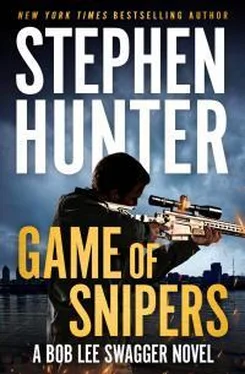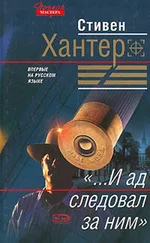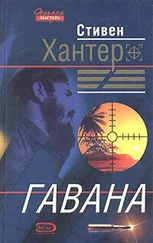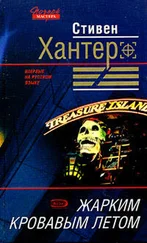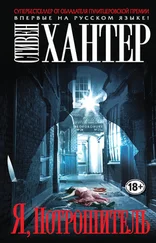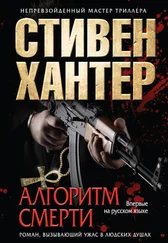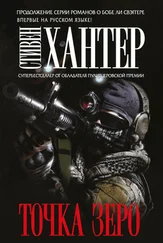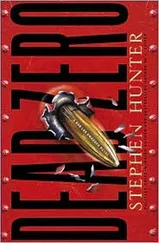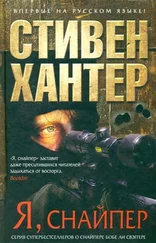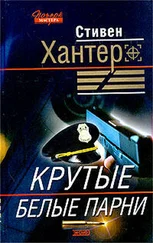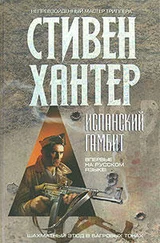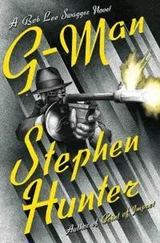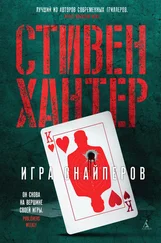In that steadiness of incantation, which evened his breathing and sharpened his vision, which calmed his hands and his nerves, he passed the time, not knowing if it were an hour, a day, or even a month.
When he opened his eyes and came back from the realm of prayer, it was light. A crisp day, still very early. Now and then, a sedan negotiated the street where he had concealed himself, usually a BMW or a Mercedes-Benz, but nobody was out for walks. The sky was clear and blue, though still blurred by the illumination of the rising sun. It had not yet cleared the small rise that had offered itself to him some two hundred and thirty-four meters down the road. From nowhere, it seemed, a woman and child had come from one of the great houses, she in bathrobe, he with a small briefcase, and stood at the curb. That meant it was time.
Juba drew the rifle to him, squirmed again to find the necessary position, set arms and chest in the correct opposing angles for the appropriate lockup of tension throughout the body, flicked the PSO-1 on, and put his dominant eye squarely to the rubber cup that cushioned the eyepiece. He was rewarded with the world swollen by a factor of four and the glow of the reticle against the crest of the hill.
He waited, not fighting the small tremble as the chevron responded to his own internal rhythms, the pulsing of his chest, the rogue twitches in his musculature, and watched as, slow, steady, dignified, the school bus rose over the crest, first its yellow roof, followed by its darkened windshield, behind which only the silhouette of the driver was visible, due to tunnel effect, against the opaque illumination from the rear escape door.
It was like any school bus from the world over, a lengthy van, a cab with a truck’s snout, a flat windshield, the whole as aerodynamic as a brick. It was meant for slow, stolid transport of squirming treasure. It halted where it had to. The driver bent a bit to open the door, and he killed her.
The bullet spalled the windshield, and she slumped, an ejected Dragon shell popped free off the action of the breech, the acrid tang of decades-old Bulgarian powder rose ambrosia-like against his nostrils, and he rotated slightly to the mother, who just stood there, crucified by shock. She may have acted on instinct to throw herself around her child, but Juba was faster by a fraction and shot her in the head, which disappeared in a spurt of plasma, just a thumb smudge against the pristine perfection of the day. The infidel child, standing there, also dumbfounded, was next, dispatched by a side entry, in the chest, his little body spasming, knocked back by the impact of the high-velocity heavy ball.
Juba settled again on the windshield and saw some young hero had raced to the driver and was pulling at her. A shot, and he pulled no more. The children left inside, of course, panicked, filled the aisles in their desperation to escape, perfectly silhouetted by the illumination pouring through the rear door from the east, and he put the chevron to each squirming blur and brought it down. In time, the windshield was so occluded by bullet fractures that it became incapable of displaying detail. But movement was enough, and he shot until there was no movement, stopping at ten to switch magazines — ack, a cartridge had slid a quarter inch forward, and so he quickly pushed it back in line — ack again, his glove caught on the lip of the mag, so he quickly shook it off, forced the cartridge under the lip down with his thumb, snapped the box in with a dexterous aplomb, and came back to find a child had actually escaped and was heading toward tree cover. He was faster than she was.
Seventeen rounds later, it was over. No more movement. Nothing.
Praise be to Allah. Thanks be to Him for blessing my enterprise, for sanctifying my mission to completion, for rewarding my effort and virtue with success.
The black cube, sixth floor
The present
He looked at the crime scene pictures, or at least the ones taken outside the bus. Three bodies inert on pavement or curb. The bus windshield a smear of cracked glass, supernovas of fracture. Fragments glittered all over the bus’s hood and the street.
He did not look at the shots from the interior of the bus. What was the point?
“And you want to interview this guy?” he said. “See, if it was me — and what do I know, I’m just an Arkansas hick — I’d cut off his face and feed it to the pigs.”
“Alas,” said Cohen, “we’re a little Jewish country. No pigs.”
“Dogs, then,” said Swagger.
“Commendable enthusiasm,” said Gold. “But Juba’s secrets are more important than his life. Who can he identify? What is he working on? Who gives him orders, who supplies the logistics, the egress and exit. Who’s in planning, who in execution, who is liaison? Which unknown state actors are influencing him? What has he heard of other operations? Perhaps most important, what is the source of their considerable funding?”
“Do you have a photo of him? What about DNA? Without those, he could be anybody that looks like anybody else named Mohamed.”
“No picture,” said Cohen. “No DNA. However, we have one good right-hand thumbprint. We believe it belongs to him, as it was taken from a shell casing found at the massacre. He would not allow anyone else to load his weapon. Prints don’t usually show up on weapons or ammunition, but this shell had a slight sheen of oil on it, and so it registered. Perhaps an error committed under the pressure of expediency.”
“By the way, did the plan work? Did he stop the treaty?”
“No, he didn’t. Your Agency people were very fleet of foot that day, and even before all the first responders were on scene, your president was on the phone to our prime minister, begging him not to let this thing get out of hand. So instead of a massacre-of-the-innocents sensation, we prevailed on our press corps — more obliging than yours — to report it as a shooting in a suburb. No casualty figures were released, no speeches were given, no funerals were open to press and television. The dead were mourned in private. Rumors went wild, of course, but there are always rumors. And in the end, your State Department got its deal, and everyone pretended the world was a little safer. We realize that it goes that way, sometimes. I concur with Cohen, for the first time, on this one. We are just a little Jewish country. What can we do?”
“I vote for the dogs,” said Swagger. “Anyhow, now what? Do you have enough? If so, how fast can you move? Who needs to give the go code? Is it just this room, or do you have to go to politicians who will decide on a dozen factors you have no control over?”
“No doubt other opinions will be sought.”
“Meanwhile, a guy like this gets antsy. He knows how many people are interested in him. He knows no place is secure forever. Look at bin Laden. Thought he had it made in the shade until Santa and his reindeer dropped by on a midnight clear. I’m tight with some of those guys. Osama had so much SEAL lead in him, they didn’t even have to weight him down when they chucked him overboard. Juba knows that. He will be ready to jump. His go bag is packed.”
“We are aware,” said Gold.
“And we just sit here?”
“We do.”
“Are you waiting for electronic intel? Have you zeroed that area and are scanning for clues?”
“Yes, but it’s less illuminating than you might think.”
“So what is happening? Or do you consider it rude to ask?”
“Ask Cohen,” said Gold.
“Mr. Cohen?”
Cohen said nothing.
“Cohen enjoys playing things out slowly. He gets more attention that way.”
“Please, Mr. Cohen,” said Bob. “I’m seventy-two. I may die before you get it out, if you don’t hurry.”
Читать дальше
